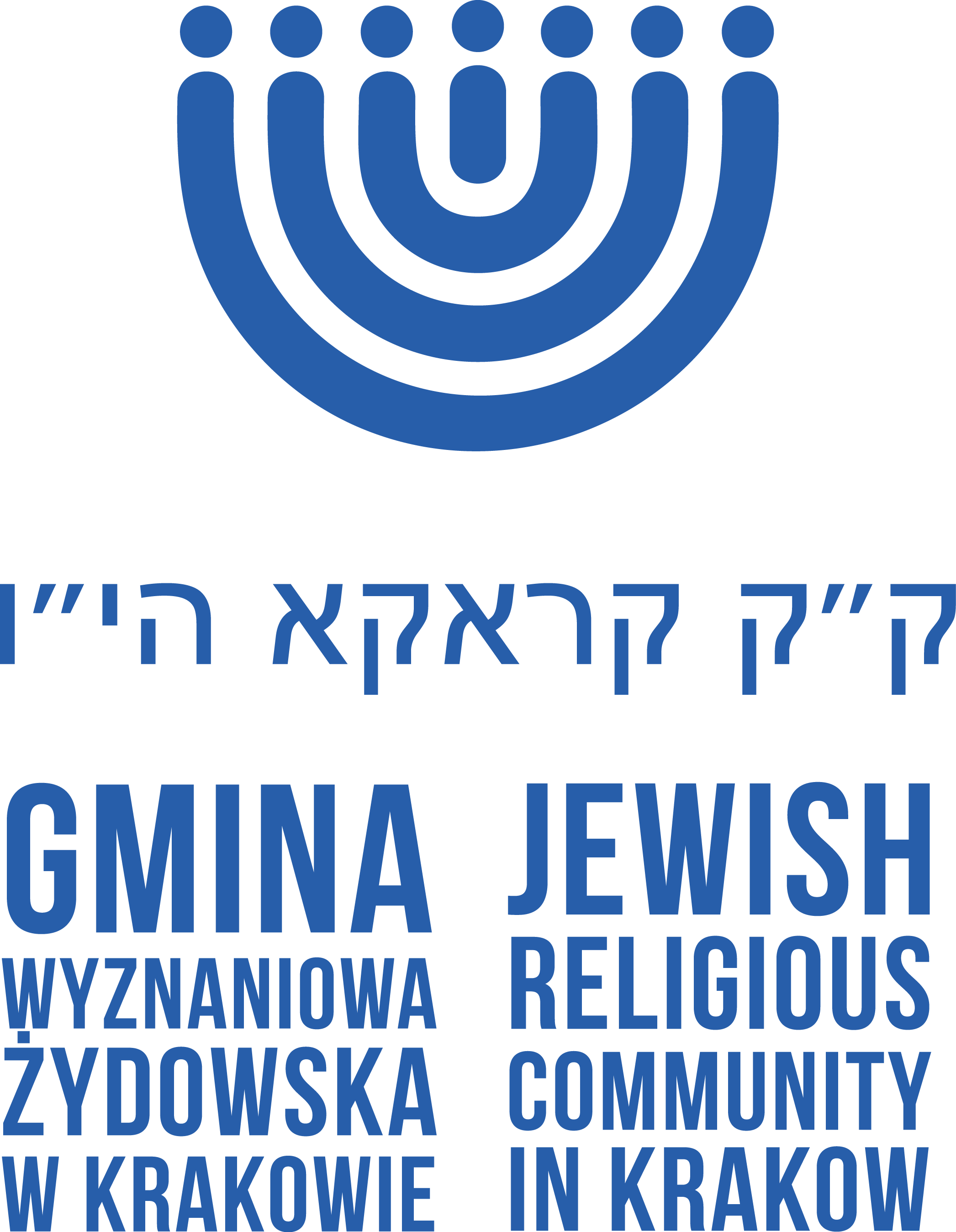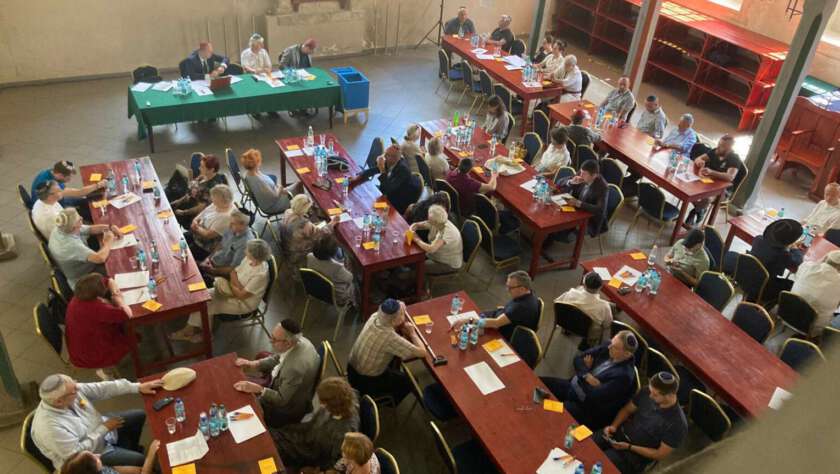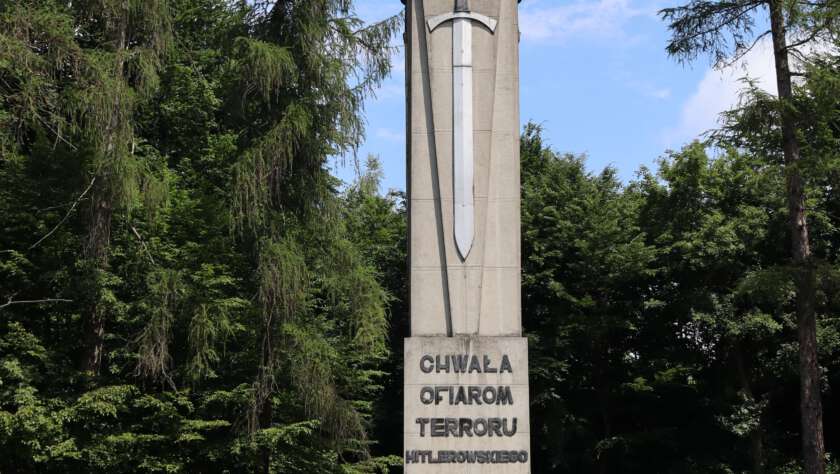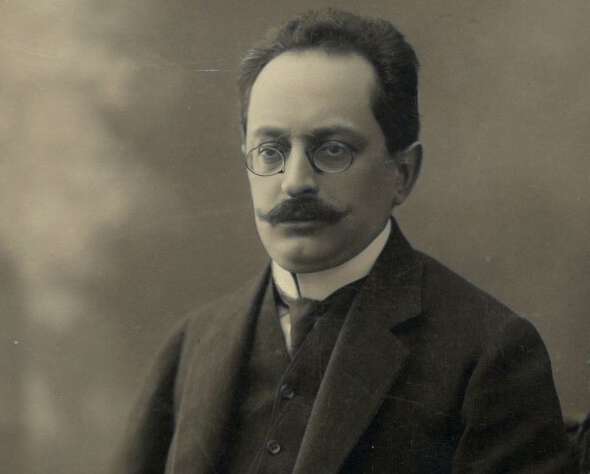The first issue of Nowy Dziennik, one of the most widely-read Jewish newspapers, first came out on 9th July 1918 9 with the initiative of Ozjasz Thon. During the war the paper was printed in Przywóz ( near Morawa Ostrawska) and its offices were located at Stradom 13. Later on, the headquarters was moved to Orzeszkowa street in Krakow.Initially, the newspaper had some hard time in free Poland as it published news about ani-Jewish incidents. Several attempts were made to seize the edition of Nowy Dziennik as well as to burn it at the stake. On 9th January 1919, the Post Office authorities working together with the army , withdrew the newspaper’s postal licence for distrubion for Galicia and Cieszyn Silesia which meant the newspaper issue was…
On 7th July 2022, the Jewish Religious Community in Krakow represented by Michał Zajda and Michał Zieliński took part in celebrations of the 80th anniversary remembering the Jewish deportation from the Rzeszow ghetto. The March of Remembrance and the unveiling of a plaque at the Rzeszow Staroniwa station was organised by Stowarzyszenie Rajsze, Fundacja Rzeszowska and Stowarzyszenie Działamy Rzeszów. The honorary patronage over the event was taken by Konrad Fiołek, Mayor of Rzeszów, who also participated in the celebrations. Other attendees included: Vice-provincial governor of Podkarpacie Radosław Wiatr, a representative of the Podkarpacie voivodeship marshal Waldemar Szumny, the University of Agriculture professor, PhD.Wacław Wierzbienic as well as several local activists. We would like to thank the organisers and all participants of the celebrations for commemorating the Rzeszow Jews. Photo…
On 4th July 2022, the Jewish Religious Community delegation led by Tadeusz Jakubowicz took part in celebrations of the anniversary remembering victims of the Kielce Pogrom from 4th July 1946. The following people were in attendance: the Ambassador of Israel in Poland Yacov Livne, Deputy Director of the Culture and Nartional Heritage Bureau of the Chancellery of the President of the Republic of Poland Dawid Drabik, Mayor of Kielce Bogdan Wenta, Chief Rabbi of Poland Michael Schudrich, Chairman of the Jewish Religious Community in Katowice Włodzimierz Katz, Chairman of the Association of Kielce Jews in Israel Yaacov Kotlicki, Director of the Auschwitz-Birkenau State Museum Dr Piotr Cywiński, Chairman of the Roma Association in Poland Roman Kwiatkowski, representatives of the Social and Cultural Association of Jews in Poland as well clergymen representing various faiths who…
Born on 3rd July 1883 in Krakow, Sara Schenirer, daughter of Becalel and Roza, née Lach, was an educational and social activist and a founder of the Bajs Jakow school. According to Sean Martin, Schenirer, who grew up in a religious sprit, dreamed about secular education, which, at that time, was unavailable for a Jewish female. Since she had no opportunity to expand her knowledge of secular subjects, she audited courses ran in Polish by Polish educational female activists. Inspired by Rabbi Flesch, whom she met in Vienna, Sara Schenirer founded a girls-only school in 1917, located in Krakow, św.Katarzyny 1. Over time, the school had expanded. Despite the school’s profile being in juxtaposition with the role of a woman in traditional Jewish families, it had lots of supporters…
A General Reporting and Election Meeting of the Jewish Religious Community in Krakow took place on 26th June 2022. The Management Board and new authorities were chosen, followed by a report of the past four years. We would like to kindly inform that the new Management Board is: Helena Jakubowicz – Chairwoman of the BoardTadeusz Jakubowicz – Vice-Chairman of the BoardBolesław Jagodski – Secretary of the BoardAleksander Opoczyński – TreasurerMagdalena Jenner – Member of the Board The Audit Committee: Dariusz Budziakowski – Chairman of the Audit CommitteeRadosław Onyszkiewicz – Secretary of the Audit CommitteeTomasz Szymański – Member of the Audit Committee The Arbitration Court: Flavio Cardone – Chairman of the Arbitration CourtSamuel Dybek – Secretary of the Arbitration CourtKuba Lewinger – Member of the Arbitration Court Congratulations!
Born on 24th June 1889 in Krakow, Joachim Metallmann, son of Menasze and Regina, née Friedner, was a philosopher of natural science, methodologist and professor at the Jagiellonian University. A St.Ann’s Gymnasium (currently Ist Secondary School) graduate, Metallmann studied Philosophy and Physics at the Philosophy Department at the Jagiellonian University between 1907-1912. He obtained the PhD title in 1912. Since 1917 he held the position of a gymnasium teacher in Mielec and Krakow (the Adam Mickiewicz Gymnasium number VII, the Hebrew Gymnasium, Vth Secondary School). From 1931 up to the outbreak of WWII Metallmann was a Philosophy lecturer at the National Pedagogium in Krakow. In 1932 he went to France on a scholarship and obtained his habilitation after returning to Poland in 1933. In 1934, having the…
Today we remember Rabbi Jakób Polak. Living at the turn of 14th and 15th century, he was the first Rabbi in Poland known by his name. In Krakow, Polak set up the first yeshiva in Poland. This Talmudic academy initiated the expansion of the Jewish studies in Poland. According to Majer Bałaban, ”Jakób Polak was an unusual person with an unusual life. Born in Germany, he learned at the famous yeshiva in Nuremberg from Rabbi Jakób Margulies. Polak excelled at school and became a Rabbi in Czech Prague at a very young age. The bond between Prague and Krakow turned out to be a lot more than just strong and as a result, Mojżesz Fiszel gave Rabbi his own daughter, Estera as well as full control and…
On 17th June 2022, celebrations of the anniversary remembering the holocaust of the Tarnów Jews began at noon, at the Buczyna Memorial in Zbylitowska Góra. Tadeusz Jakubowicz , Chairman of the Board of the Jewish Religious Community in Krakow, said: 80 years ago, occupiers turned the Jews’ lives into hell. Were these people bad? No, they were not. They were simply Jews. Manager of the Krakow branch of the Institute of National Remembrance, habilitated doctor Filip Musiał, who was also in attendance, read out loud a letter by Chairman of the Institute of National Remembrance, PhD Karol Nawrocki. The Jewish Religious Community in Tarnów was represented by Adam Ryba and the ceremony was ran by Adam Bartosz Approximately 40,000 Jews lived in the Tarnów ghetto in June…
Born on 17th June 1891 in Kołomyja, Jakub Stendig, son of Anschel, was a Krakow-based architect. His projects include buildings at Wietora 7, Komorowskiego 5, Karłowicza 13 and Metalowców 3. A 1915 graduate of the Buildings Department at the Industrial School of Krakow who also studied Architecture at the Academy of Fine Arts in Krakow where he obtained a builder’s licence in 1931. During the occupation times, Stendig was forced by the Germans to develop the infrastructure of the Płaszów camp. After the WWII outbreak, he was made accountable for organising and managing a Construction Departent. Apart from that, Stendig volunteered to rescue synagogue monuments. He collected several items and documents which he then catalogued. These included various liturgical relics like 150 Torahs, curtains and lambrequins, sacred…
Born on 13th June 1869 in Krakow, Rafał Saul Landau, son of Hirsch and Jetti, née Wasserberg, was the Councillor at Krakow City Council between 1905-1933, President of the Jewish Religious Community in Krakow between 1938-1939 , a supporter of assimilation and a Chairman of the Association of Progressive Israelites (1918 – 1939). Landau graduated from St.Jack Gymnasium in Krakow (1886), followed by the Faculty of Law at the Jagiellonian University (1890). He obtained his PhD title in 1892. He started his career as a lawyer in 1898. During WWI Landau was the Chairman of Jewish Cheap Cooking. Throughout the interwar period, he held the position of the President of the Jewish Religious Community in Krakow (1918-1939). Since 6th January 1933 he was the Chairman of a…











